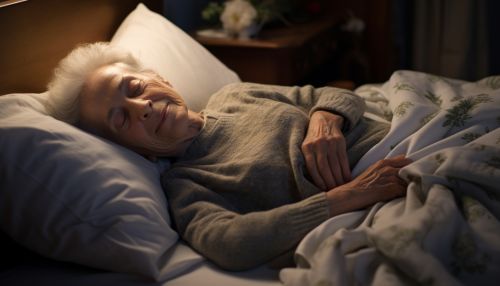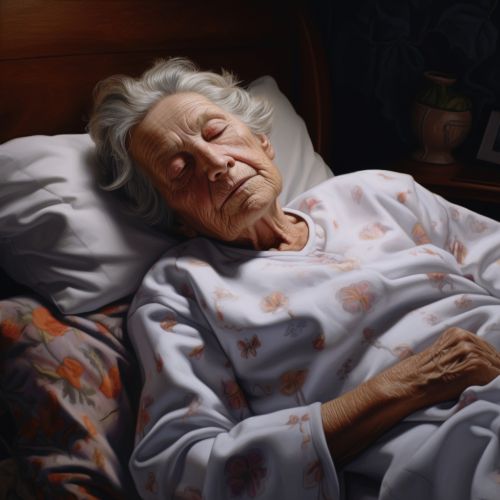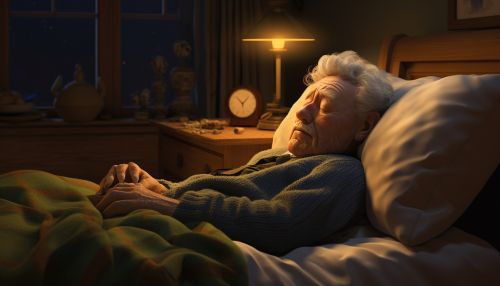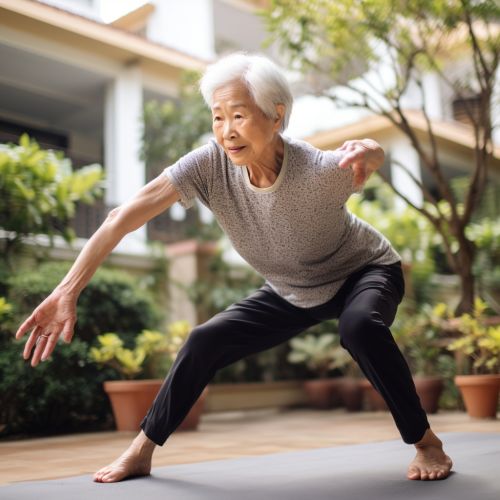The Science of Human Sleep and Aging
Introduction
Human sleep, a complex physiological process, is an essential component of human health and well-being. As people age, changes in sleep patterns and sleep quality become evident, which can impact overall health and longevity. The science of human sleep and aging is a multidisciplinary field that encompasses areas such as neuroscience, gerontology, and chronobiology.


Sleep Architecture
Sleep is not a uniform state of unconsciousness but is divided into several stages, each with distinct physiological characteristics. These stages include rapid eye movement (REM) sleep and non-REM (NREM) sleep, which is further divided into stages 1, 2, and 3. The cyclic alternation of these stages throughout the night is known as sleep architecture.
Non-REM Sleep
Non-REM sleep is the period of sleep that is typically associated with body repair and recovery. It is during this stage that growth hormone is released, tissue repair occurs, and the immune system is bolstered.
Stage 1
Stage 1 of NREM sleep is the lightest stage of sleep, often described as the transition between wakefulness and sleep. This stage typically comprises about 5% of the total sleep cycle.
Stage 2
Stage 2 of NREM sleep is a period of light sleep before entering deeper sleep stages. It typically comprises about 45-55% of the total sleep cycle.
Stage 3
Stage 3 of NREM sleep, also known as slow-wave sleep or deep sleep, is the most restorative stage of sleep. This stage typically comprises about 15-25% of the total sleep cycle.


REM Sleep
REM sleep is the stage of sleep associated with dreaming, memory consolidation, learning, and creativity. It typically comprises about 20-25% of the total sleep cycle.
Changes in Sleep with Aging
As individuals age, several changes in sleep architecture and sleep quality occur. These changes can impact both physical and mental health, and understanding them is crucial for maintaining optimal health and well-being in older adults.
Decrease in REM and Deep Sleep
One of the most significant changes in sleep with aging is a decrease in the amount of time spent in REM and deep sleep. This decrease can impact memory consolidation and overall cognitive function.
Increase in Sleep Fragmentation
Sleep fragmentation, characterized by frequent awakenings or arousals during the night, increases with age. This can lead to decreased sleep quality and increased daytime sleepiness.
Changes in Circadian Rhythm
The circadian rhythm, or internal body clock, also changes with age. Older adults often experience a phase advance, meaning they tend to go to sleep earlier in the evening and wake up earlier in the morning.
Sleep Disorders in Older Adults
Older adults are more likely to suffer from sleep disorders such as insomnia, sleep apnea, and restless legs syndrome. These disorders can significantly impact sleep quality and overall health.


Impact of Sleep on Aging
Sleep plays a crucial role in the aging process. Adequate sleep is necessary for various physiological processes, including memory consolidation, metabolic regulation, and immune function.
Sleep and Cognitive Function
Poor sleep quality or insufficient sleep can lead to cognitive decline and increased risk of neurodegenerative diseases such as Alzheimer's disease.
Sleep and Physical Health
Sleep deprivation can lead to various health problems, including cardiovascular disease, diabetes, and obesity. On the other hand, good sleep hygiene can promote physical health and longevity.
Sleep and Mental Health
Sleep disturbances can also impact mental health, leading to conditions such as depression and anxiety. Ensuring adequate sleep is therefore crucial for maintaining mental health in older adults.
Strategies for Healthy Sleep in Aging
Maintaining good sleep hygiene is essential for promoting healthy sleep in older adults. This includes regular sleep schedules, a conducive sleep environment, and avoidance of sleep-disrupting substances such as caffeine and alcohol.
Sleep Environment
A conducive sleep environment is crucial for promoting good sleep. This includes a quiet, dark, and cool room, and a comfortable bed and pillows.
Sleep Schedule
Maintaining a regular sleep schedule, with consistent bedtimes and wake times, can help regulate the body's internal clock and promote better sleep.
Diet and Exercise
A healthy diet and regular exercise can also promote better sleep. However, it is important to avoid heavy meals and vigorous exercise close to bedtime.
Conclusion
The science of human sleep and aging is a complex field that encompasses various disciplines. Understanding the changes in sleep with aging and the impact of sleep on health and well-being is crucial for promoting healthy aging. Despite the challenges, maintaining good sleep hygiene and addressing sleep disorders can significantly improve sleep quality and overall health in older adults.


